Jimmy Kimmel made headlines earlier this year for saying that Spider-Man: No Way Home should’ve been nominated for best picture at the Academy Awards — whose awards telecast (finally) take place this Sunday. Forget the matter of whether or not Kimmel was being sarcastic at the time (at least partly, in my opinion), it was the perfect clickbait story because it gave people on the internet the opportunity to do what we do best: argue with each other. And on shaky pretexts.
Does saying Spider-man deserved to be nominated for Best Picture mean it’s in your top 10 for the year? Or does it just mean that it’s better than at least one of the 10 films nominated for Best Picture? For me, the answer to the first question is absolutely not, and the answer to the second question is… maybe? For his part, Kimmel singled out Don’t Look Up as an undeserving Best Picture nominee that Spider-man could’ve potentially replaced, and… sure, why not. I suppose it all comes down to how you rank a flawed, sporadically entertaining attempt at something against an incredibly slick achievement in giving the piggies three different kinds of slop. I’d probably agree with Kimmel and go with the latter; Spider-man was pretty good slop.
This is all a long way of saying that it’s easy to argue that a particular movie should or shouldn’t have been nominated for an Oscar (where is the love for Green Knight and Red Rocket, you ignorant apes!), but for better or worse, our choices have been set. Now is the time to argue about which is the best.
To that end, I’m offering you my own rankings as tribute. The following is how I would rank the best 2021 movies nominated for Best Picture at the 2022 Oscars. This is obviously a work of subjective opinion, so if you find yourself disagreeing with anything here, just take a deep breath, find a bathroom, and say “it’s okay to be wrong” three times into the mirror. At which point I will materialize by your side and pull down my pants.
10. West Side Story

I didn’t even review this, my sense at the time being that a two-hour and 36-minute musical version of Romeo & Juliet, remade from a 1950s musical, wasn’t going to be my cup of tea. I caught this on HBO Max the other night and… now I can confirm. It is not.
A lot of people blamed West Side Story‘s relatively poor word of mouth and subpar box office gross on people not liking musicals, but I’m not so sure that was the issue. At least, not exactly. People might say they don’t like West Side Story because they don’t like musicals, but that’s probably because West Side Story isn’t offering much beyond the general idea of being musical. There’s no particular point of view or compelling take on an old story or undeniably catchy music that would make it either an entertaining romp or a compelling story. As an artistic gesture, it’s more like “Hey, you guys like musicals, right? Well here’s a musical for ya!”
When that’s the pitch, of course the person who turns it down is going to blame musicals. I think we can all agree that Steven Spielberg shoots a gorgeous scene, and West Side Story is certainly nice to look at, but I have more or less the same questions about West Side Story as I did about Cyrano: What are we doing here?
This was definitely a gorgeous, lovingly-crafted version of a thing, but I don’t quite understand what made the filmmakers want to make that thing. West Side Story is a musical created in the 1950s, retelling Romeo & Juliet with rival Puerto Rican and Irish gangs as the Montagues and Capulets. Romeo & Juliet was already an old story in the 16th century, sort of the definitive version of “crazy love.” West Side Story was certainly a dutiful retelling of that, with a new setting and songs, but not much in the way of a hook. Even Steven Sondheim admitted at the time, “I’ve never met a Puerto Rican.”
Which is to say: there’s a big hole where an actual perspective should be. Spielberg’s version “fixes” the most basic of issues with the original — like not having white actors in brownface play the Puerto Ricans, and not using subtitles for the Spanish dialogue (uh… sure?) — but it fails to find what it needed most: any take on the material that might’ve made it interesting to someone in 2021.
So what is it, then? A museum piece for people who want to see a “truer” version of a corny fifties musical? It has a story that’s fine, with some songs that are fine (the “Cool” number was easily the high-water mark) and combining the two doesn’t make the whole any better than fine. It just makes it long.
For my money, nothing in West Side Story was as good as Channing Tatum’s “No Dames” number in Hail Caesar.
This was a brilliant parody of the format, a cool production in its own right, and hilarious to boot. Now that I would’ve watched two more hours of.
9. King Richard
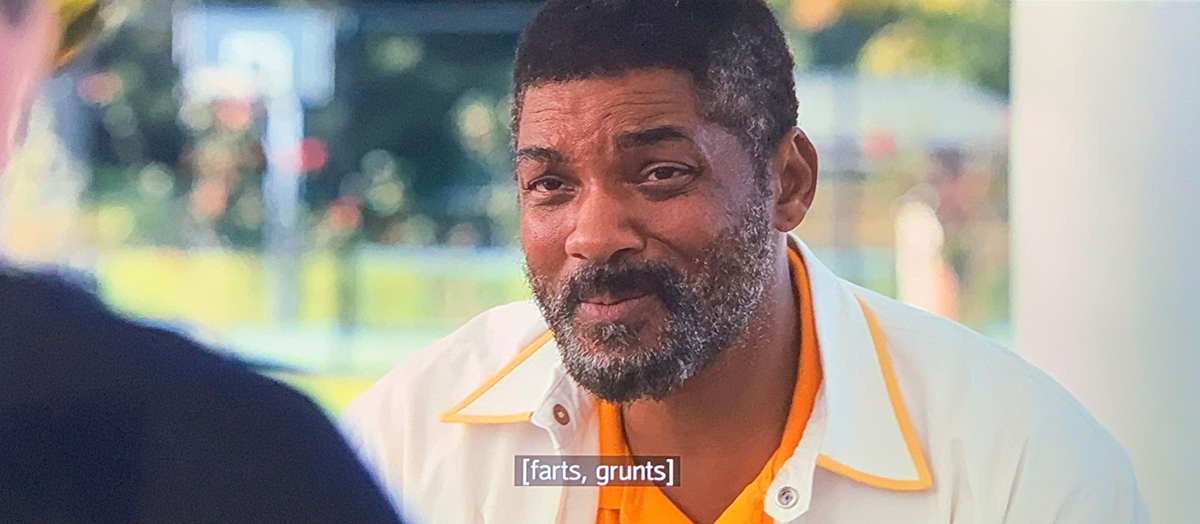
I admit it, after Rocketman, Bohemian Rhapsody, Straight Outta Compton… part of me hoped that we as a culture would be done with the vanity biopic. Then came the story of Richard Williams, father of tennis greats Venus and Serena Williams, as told in a movie produced by the Williams family. Would you believe that Richard Williams was an unorthodox genius, according to this film? Who protected his daughters from a ravenous media and defied the conventional wisdom while raising a pair of champions? Who never misbehaved, even as teenagers? Gosh, what a story!
Watching fictional Ice Cube, played by Ice Cube’s son, pen the first lines of the screenplay for Friday in Straight Outta Compton was sort of funny, even if I’m fairly certain it didn’t happen quite that way in real life. In King Richard, there’s a scene where a neighbor calls CPS on Richard Williams for being so hard on his kids. In the movie, she’s clearly just a jealous hater, but it’s impossible to watch without wondering what that scene actually looked like from an outsider’s perspective. Taking King Richard at anything resembling face value would require a level of credulousness and subtext-blindness I just can’t muster.
Even if you could, what would you really get out of it? The knowledge that Richard Williams was right all along? The joy of watching Will Smith overact? Please just give him an Oscar already, he’s trying so hard.
8. Don’t Look Up
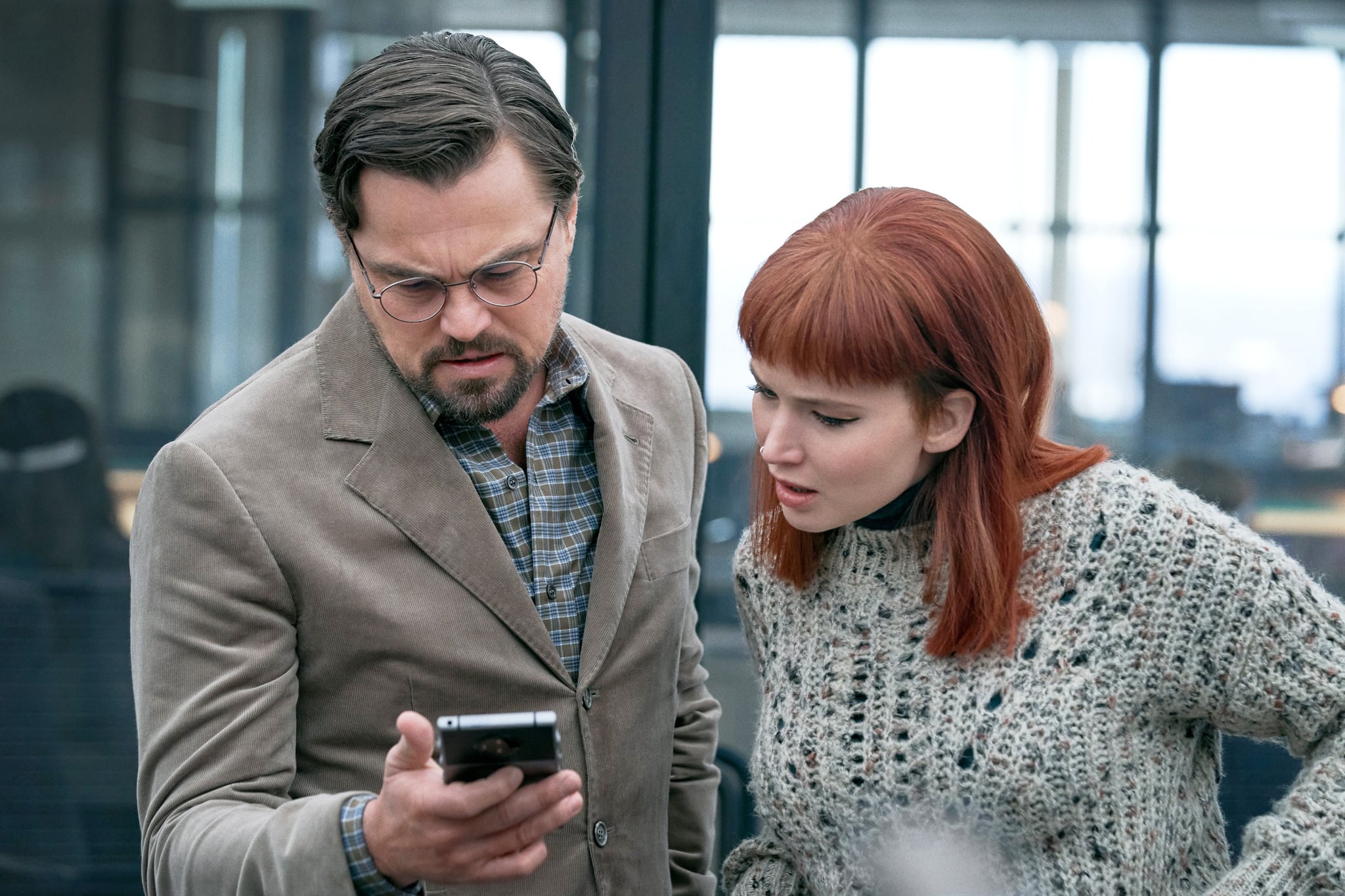
This was the movie Jimmy Kimmel chose to single out, and for good reason: it became the basis for the biggest movie fight we had all year (“we” defined here as those of us who compulsively overshare our movie opinions online). If you didn’t like it, it was because you didn’t understand the climate change metaphor or care about climate change as a phenomenon. If you did like it, you were a smug prick in love with your own voice and with heavy-handed metaphors. I saw one of those “brutally honest Oscar ballot” posts recently where the anonymous Academy voter called it “a one-joke movie.”
Which is bizarre, because say what you will about Don’t Look Up, it did have a lot of jokes. Anyway, I tend to fall somewhere in the middle. A lot of people are rightly sick of Adam McKay’s whole deal, but there were a lot of great things in Don’t Look Up — Cate Blanchett’s news anchor, the grace scene, Jonah Hill playing what I assume was more or less Jonah Hill, the end gag with the alien thingy — even if it was too long and didn’t really hang together as a complete movie. It wasn’t great but it was fine.
7. The Power Of The Dog
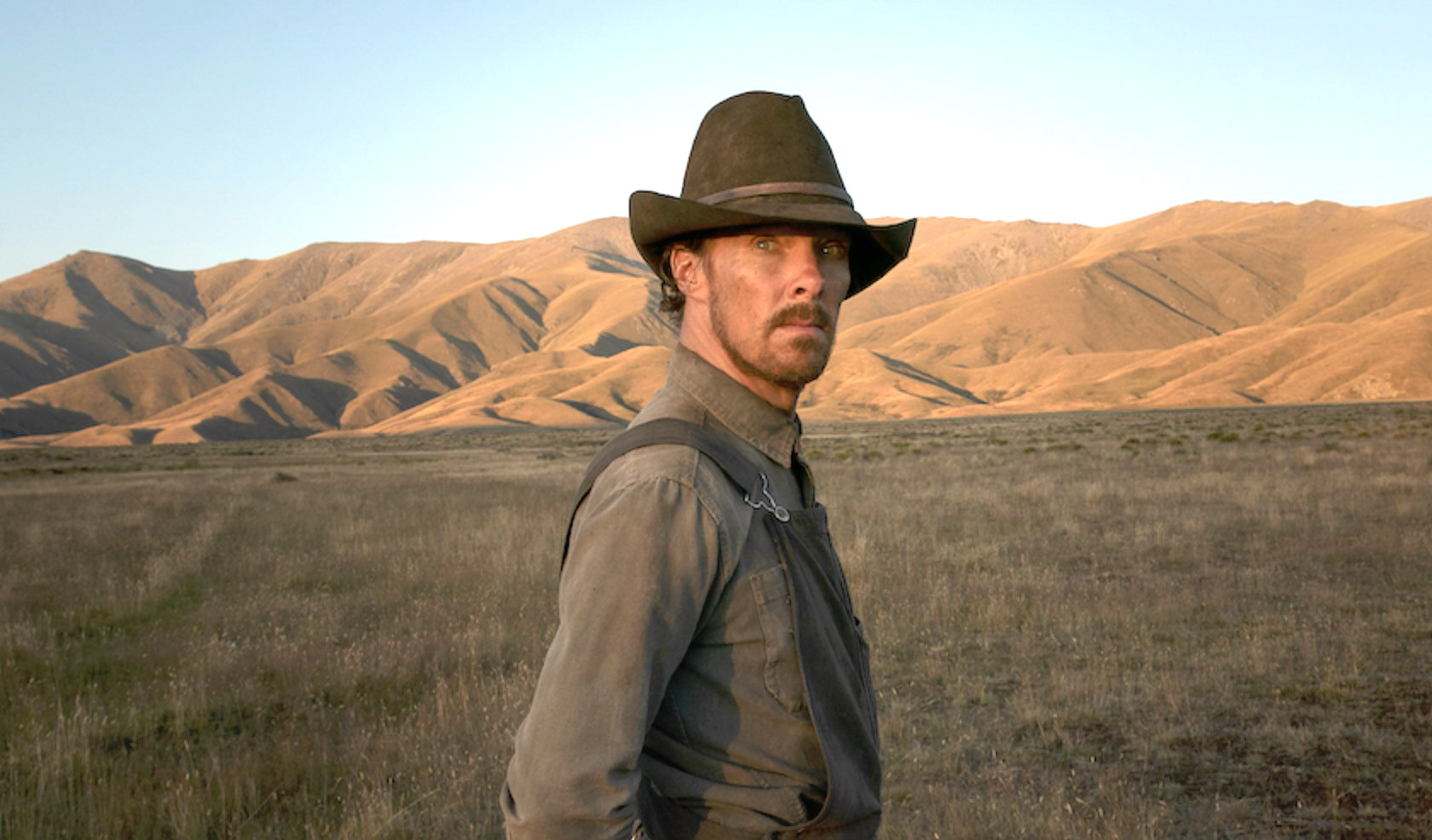
I’ve essentially become a conscientious objector when it comes to Jane Campion movies. I accept that many people love them and that they never do much for me. She’s great with actors, with textures, and with setting compelling scenes, to the point that I’ve never considered not finishing one of her films. They’re always compelling, in that sense. Yet when I get to the end of her movies, I always find myself thinking “that’s it?”
That was basically the deal with The Power Of The Dog. It was interesting enough, and I appreciated the Bronco Henry storyline for basically being the arthouse Bill Brassky, but that Big Surprise Ending felt more like a late-second-act complication than something that tied the whole movie together. Mostly I appreciate Kodi Smit-McPhee for being an excellent human sight gag.
6. Nightmare Alley
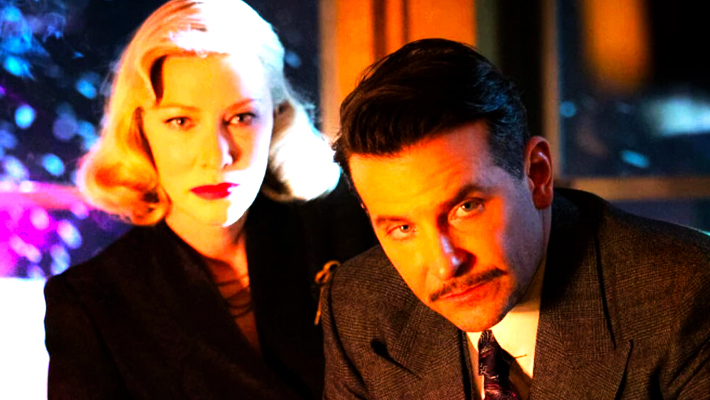
Guillermo del Toro doing a movie about 30s carnies felt like a match made in heaven for the first two-thirds or so of Nightmare Alley. Then Bradley Cooper’s character left the carnival and fell in with Cate Blanchett’s character (who was too subdued and not really one of her best roles) and the whole thing got a lot less interesting. It did look great though.
5. CODA
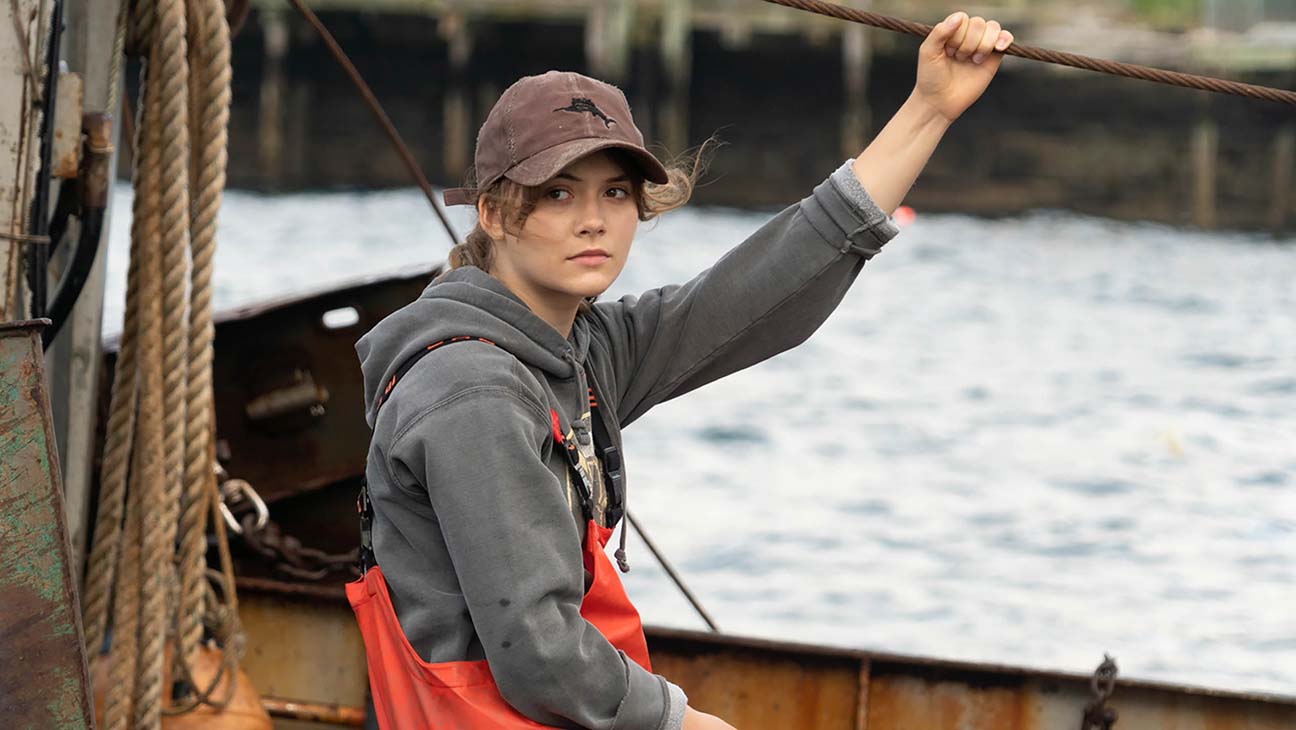
CODA tells the kinda schmaltzy, kinda corny story of a Child Of Deaf Adult trying to make her way as a teenager in Massachusetts. On paper, CODA is pretty lame, a girl who just wants to sing, whose parents just don’t understand, because they’re DEAF! They can’t even hear the music! (Did we not already cover this in Mr. Holland’s Opus?)
But CODA ended up being a record sale out of Sundance, I suspect partly because festival movies are often so dreary, meandering, flawed, challenging, dull… that when a slickly conventional feel-good picture comes along, it ends up feeling like a revelation by comparison.
CODA feels like an afternoon special, and as someone who grew up around a lot of deaf people (my father taught sign language) it seemed like they vastly overstated how hard it is for deaf people to communicate with the hearing. I don’t remember it being that hard, but maybe that’s just me only remembering being on the hearing side of things. Anyway, CODA is kind of a cheesy afternoon special, but it was mostly a pretty good afternoon special. If anything made it more than average, it was Emilia Jones’ voice. The girl sings her ass off. CODA used music to turn otherwise middling schmaltz into something more in exactly the way West Side Story mostly did not.
4. Belfast

Belfast is even closer to a great movie, a 60-year-old Belfast-bred actor’s answer to Ladybird or Brooklyn. Kenneth Branagh should do personal more often. And Jaime Dornan and Catríona Balfe both looked insanely good in wool, in a way that made it impossible not to swoon a little. There were a handful of cinematic memoirs that came out around the same time, and all things considered, Belfast was much better made and focused than The Tender Bar.
Even so, Kenneth Branagh is still kind of a cornball at heart. Even in his most personal film he still makes some obnoxiously conventional choices. Did we really need war depicted through the faux-innocent perspective of a child? Jude Hill was great for a 10-year-old, but he’s still a 10-year-old, and there are certain things you shouldn’t ask of child actors — like being the emotional anchor for scenes in your cinematic memoir with their faces framed in close-up, say. Child actors shouldn’t be a thing! It’s a harsh truth we all must accept! Just PEN15 everyone, you’ll hardly even notice!
Sorry, I always digress when I get to complaining about child actors. Anyway, Belfast‘s opening shots of the Belfast skyline were so beautiful that they made me wish the whole film had been in color. Instead, Branagh made the dubious decision to fade to black and white for the flashback scenes (which is to say, the entire movie). Wait, it’s in black and white because it’s the PAST? Oy. Isn’t anyone else sick of “it’s in black and white because art” yet?
And yet, here we are, talking about Belfast as a Best Picture nominee. I hate “black and white because art” as a concept, but I can’t deny it as a successful strategy. “Ooh, black and white, it must be art.”
(Do not take this opportunity to talk shit on The Artist, The Artist was great).
3. Drive My Car
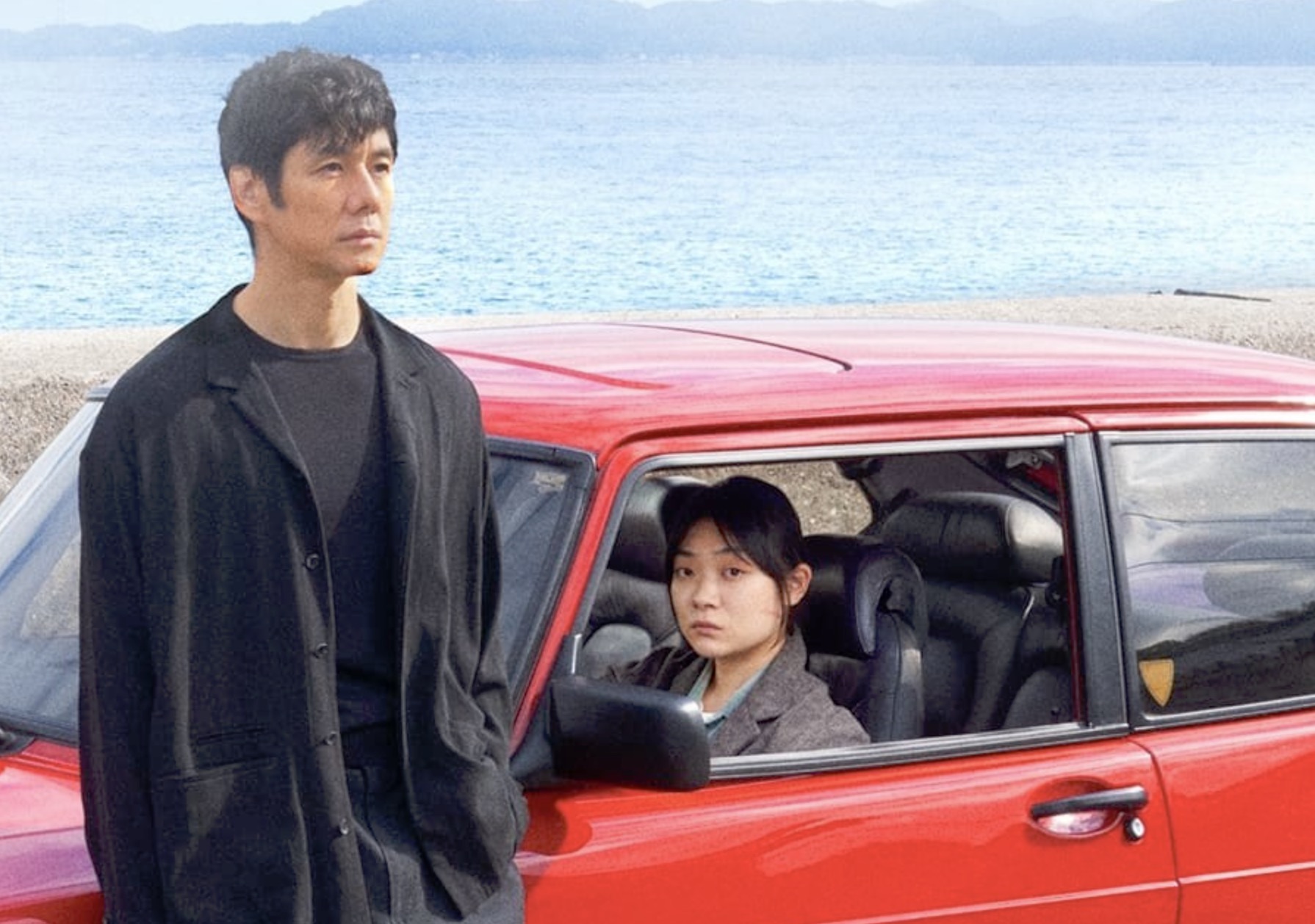
Drive My Car is probably the movie I struggle with the most in this ranking. Maybe because it almost feels like two movies. There’s the one that’s almost painfully arthouse conventional — the protagonist mourning a dead child (and more!) who bonds with someone else who has also lost when she becomes his driver. The ol’ trauma plot! All suitably understated and full of people doing theater because ART. It’s Driving Miss Manchester By The Sea, as written by Noah Baumbach! Why must arthouse filmmakers persist in their delusion that grief is the most interesting emotion?
But then Drive My Car is also this other movie, one that I wholeheartedly love, a really weird story about a guy whose wife becomes possessed by a story demon after they have sex. He can only finish her script by collaborating with the man who has cuckolded him. That movie ruled.
Anyway, I can’t wholeheartedly recommend three-hour movies about grief, but ultimately I am glad that I saw this one. It helps that the whole thing looked gorgeous and had countless loving shots of a 1990s Saab. If you’re going to make a car into movie character, a 90s Saab is a great choice. Saabs look like they were designed by someone who had heard about cars second-hand but had never seen one. They’re like the Kodi Smit-McPhees of cars.
2. Dune
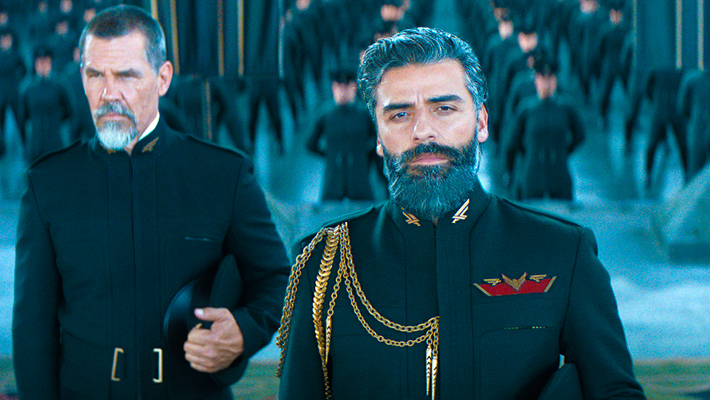
The first two movies on this list are my top two by a mile, but harder to rank against one another. I was a total Dune virgin when I saw this one and I loved Denis Villeneuve’s take on it, virtually without reservation. Dune made me feel the way I assume people who are really into Star Wars feel about Star Wars. Star Wars by comparison feels like trying to have the icing without the cake. In Dune, suddenly all the fighting and space colonialism and, yes, magic, has a logic to it, and one that doesn’t rest on “oh, well these people who are good represent ‘the light’ and these ones who are bad represent ‘the dark.'”
Dune gives all the players real motivations and something to fight over, without losing any of the goofiness and zany creativity. Do the sand dance or else the giant worms will eat you! Genius. Villeneuve’s natural seriousness (which has occasionally grated on me in certain movies) and flair for spectacle pairs perfectly with subject matter as naturally wacky as Dune, which seems to waffle between brutally cutting satire and deliciously eccentric flights of fancy.
Dune also felt like further confirmation that even if Hollywood hasn’t turned Jason Momoa into a brilliant actor, they have gotten great at figuring out which movies and scenes could do with more Jason Momoa. I don’t need Jason Momoa to be Daniel Day-Lewis, most times I just need him to be Jason Momoa. “Okay, now for this scene, I want you to really get in there and be Jason Momoa. Action!”
In Dune he got to be Extremely Jason and Incredibly Momoa and it was perfect.
1. Licorice Pizza
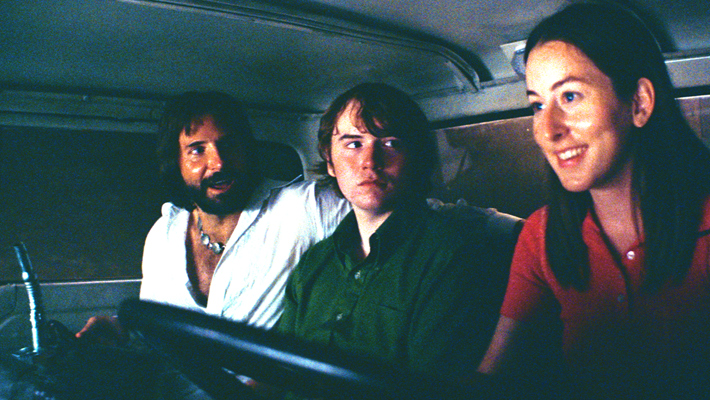
Licorice Pizza is a bit of a shaggy dog story, but then all of Paul Thomas Anderson’s movies are kind of like that, aren’t they? Yes it “meandered.” No, it wasn’t “tight.” But when your scenes are this beautiful and your episodes this memorable a sort of episodic structure works just fine. His movies have quiet parts and loud parts, like a Pixies song. When was the last time a filmmaker made Sean Penn this likable?
Who else would even be brave enough to set a film in Southern California starring a bunch of legacy celebrities and have it be about an inappropriate love affair between an adult and a teen? It’s like Anderson spent this entire film whacking Q-Anon’s cage with a stick and tossing in chunks of raw meat.
For me Licorice Pizza was more than just the tale of two fucked up people seeing in each other only the stuff that they wanted to, it was like a rosetta stone for Paul Thomas Anderson’s brain. It contained all his standard characters and pet themes, from lovable hucksters to pseudo-celebrities to overgrown children running around (literally running, in many cases) with no adult supervision — set in his favorite decade, the 1970s, the decade of no adult supervision. Only this time the story was so clearly personal that it offered not just his pet themes but an exploration of how they came to be his pet themes.
When you watch almost every shitty movie that comes out as a job, you occasionally get to wondering how you ever did this for fun. Then a movie like Licorice Pizza comes out and reminds you how good movies can be.
The Academy Awards take place Sunday March 27 at 5 pm ET. Vince Mancini is on Twitter. You can check out his film review archive here.







